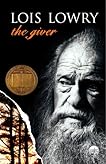 John Wells is a CIA agent who has had a rough time the past couple of years. In two previous books by Berenson, The Faithful Spy and The Ghost War, Wells is the hero who must save the world in some way. And The Silent Man is no different. I have not read the other two books, but I can vouch for the fact that this book stands on its own - no need to read the other two first.
John Wells is a CIA agent who has had a rough time the past couple of years. In two previous books by Berenson, The Faithful Spy and The Ghost War, Wells is the hero who must save the world in some way. And The Silent Man is no different. I have not read the other two books, but I can vouch for the fact that this book stands on its own - no need to read the other two first.The Silent Man is the story of an Iraqi man who becomes a jihadi after his family is killed during the American invasion of Iraq. He connects with various people around the world who help him to acquire nuclear material in the form of bombs from Russia, which he plans on using to make his own bomb. In the beginning of the book, there is no connection between this plot and Wells, but after Wells attempts a mission of revenge against a man who tried to have him and his fiance killed, he becomes very involved. Wells is unable to accomplish the act of vengeance that he seeks against Pierre Kowalski, and in order to save himself, Kowalski offers Wells information about the terrorists. From there it is a tense race against the clock.
I enjoyed this book, and I can see why people are fans of this genre. I must admit that I am not a fan of thrillers of this sort, and even though I read and enjoy them occasionally, I doubt they will ever be my favorite. I mostly find them depressing and rather cynical, especially because I feel like the bad guys are always stereotypical. But I guess they have to be recognizable, so in this day and age, the bad guys are typically Muslim terrorists. Anyways, this is a good example of the genre, and it is definitely a page-turner. The characters have a decent amount of depth, even the bad guys, which makes reading it much more interesting. All of the characters are conflicted in some way, especially John Wells. He has had more time to develop as a character through the series, and he is a very complicated man. Not your typical hero at all. But he does his best, and when that involves saving the world, who can complain?
This is another book that qualifies for the Suspense and Thriller Reading Challenge, which I am surely not going to finish by the end of the year. But whatever. This one qualifies as both a Spy Thriller and a Terrorist Thriller, but I think I will use it for the former. A Spy Thriller is "where the hero is generally a government agent who must take violent action against agents of a rival government or (in recent years) terrorists."












